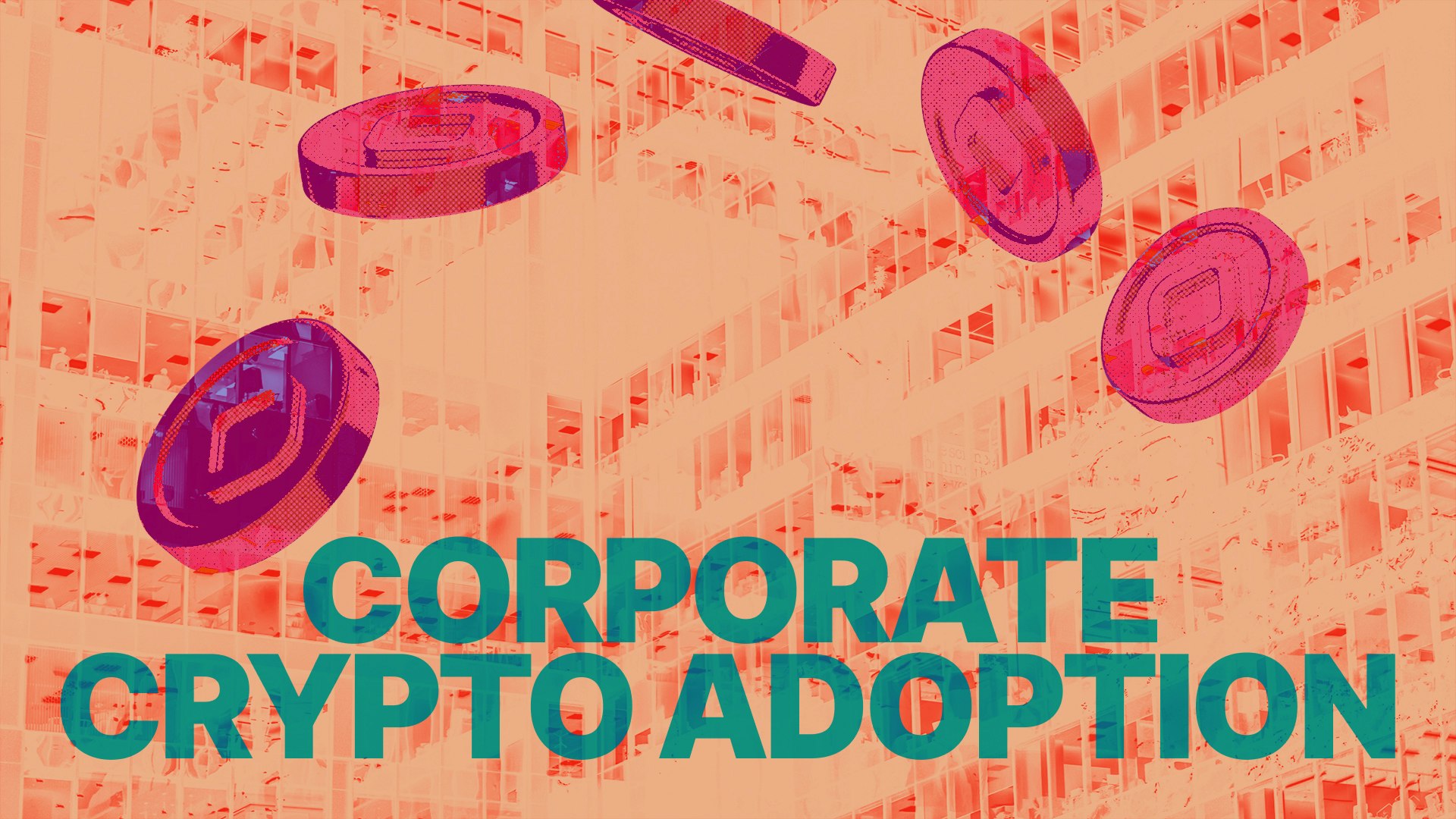Corporate Crypto Adoption: How CFOs Are Using Digital Assets Now
Are corporates and institutions open to using cryptocurrencies? Here are some changes in the traditional finance landscape.
In this article...
- Some interesting new surverys show that corporate interest in crypto is growing
- Institutions and corporations may be more interested in the uses of crypto
- Here's what CFOs might be interested in knowing

The usually conservative corporate treasury landscape seems to be changing with the times. Until now, digital assets have been viewed as speculative investments by many in traditional finance. Lately, however, that view seems to be shifting. Now, those in traditional finance seem to be moving towards using cryptocurrency as strategic financial instruments. Just how many CFOs are now seeing cryptocurrencies as part of a modern treasury?
The Numbers Tell the Story
Recent data from Deloitte's Q2 2025 CFO Signals Survey reveals a shift in corporate sentiment.
Twenty-three percent of CFOs expect their treasury departments to use cryptocurrency for either investments or payments within the next two years.
This figure rises dramatically among larger enterprises. For companies with revenues exceeding $10 billion, nearly 40% of CFOs anticipate crypto adoption within 24 months.
Treasury Management Revolution
CFOs may have noticed blockchain technology's potential to fundamentally restructure how corporations manage liquidity, execute cross-border transactions, and optimise working capital.
The regulatory environment has also evolved to support this transition. Recent crypto regulation in the USA has created unique opportunities for corporate finance. It provides the legal framework that risk-averse CFOs require before committing shareholder capital to digital asset strategies.
Strategic Use Cases Emerging
Three primary use cases could be driving CFO interest.
Cross-Border Payment Efficiency
Traditional international wire transfers can take days and involve multiple intermediaries, each clipping the ticket on the way through. Stablecoins and other crypto payment rails enable same-day settlement with significantly reduced costs, and few, if any, intermediaries.
Treasury Yield Optimisation
With traditional money market yields fluctuating, some corporations are exploring DeFi protocols for enhanced returns on idle cash. That is, some CFOs are looking into staking on crypto platforms for higher interest.
Supplier Payment Innovation
Some companies are offering crypto payment options to vendors. This is more likely in technology and services sectors where digital asset acceptance is higher. This approach can reduce transaction costs while positioning the company as innovative to its customers.
Risk Management Considerations
Despite growing acceptance, let’s not start the tipping point party just yet. CFO adoption remains measured and strategic. Price volatility remains the top concern for 43% of CFOs. This is a sound response given cryptocurrencies' historical price swings.
However a good experiment is stablecoin adoption. Thanks to their design of having a stable price, stablecoins have become the entry point for some corporations.
For companies pursuing non-stablecoin digital assets, 15% of CFOs indicated their companies could purchase these assets over the next two years.
The Mainstream Adoption Perspective
So is crypto going mainstream? Is this the tipping point? It could be. When Fortune 500 CFOs allocate shareholder capital to crypto strategies, it might signal fundamental acceptance within traditional finance.
As more companies accept digital payments and integrate blockchain systems, the value of digital assets increases beyond pure speculation. Crypto has a use case. It is useful.
And institutional demand puts a rocket up governments. Officials receive pressure to establish comprehensive digital asset frameworks, creating more stable operating environments.
Looking Forward
The trajectory of corporate crypto adoption appears increasingly clear. CFOs in Deloitte's survey expect to be using digital currency within two years. This could mean that 2025 may represent the inflection point where corporate crypto goes from experimental to operational.
Digital assets might no longer be a peripheral concern, but a component of modern corporate finance. For CFOs, the question is not whether to engage with crypto, but how quickly to develop the expertise necessary to compete in a world where everyone else is adopting crypto before you do.

Suggested Articles

Where to Keep Cryptocurrency: A Guide to Storing Digital Assets
Understanding the difference between self-custody and third-party storage to keep your private keys secure.Read more
Why is Crypto Crashing? Explaining the Crypto Bloodbath
Why is crypto crashing today? Here is the explanation of some of the blow-up.Read more
How to Use Wise to Withdraw Fiat from CoinJar
A simple way to move funds from your CoinJar account to your Wise multi-currency account.Read moreBrowse by topic
Disclaimer: This article is for informational purposes only and does not constitute financial or investment advice. Cryptocurrencies, including Bitcoin, are highly volatile and speculative assets, and there is always a risk that they could become worthless.
Readers should conduct their own research and consult with a qualified financial advisor before making any investment decisions.
CoinJar does not endorse the content of, and cannot guarantee or verify the safety of any third party websites. Visit these websites at your own risk.
Your information is handled in accordance with CoinJar’s Collection Statement.
CoinJar’s digital currency exchange services are operated by CoinJar Australia Pty Ltd ACN 648 570 807, a registered digital currency exchange provider with AUSTRAC.
CoinJar Card is a prepaid Mastercard issued by EML Payment Solutions Limited ABN 30 131 436 532 AFSL 404131 pursuant to license by Mastercard. CoinJar Australia Pty Ltd is an authorised representative of EML Payment Solutions Limited (AR No 1290193). We recommend you consider the Product Disclosure Statement and Target Market Determination before making any decision to acquire the product. Mastercard and the circles design are registered trademarks of Mastercard International Incorporated.
Google Pay is a trademark of Google LLC. Apple Pay is a trademark of Apple Inc.
This site is protected by reCAPTCHA and the Google Privacy Policy and Terms of Service apply.

